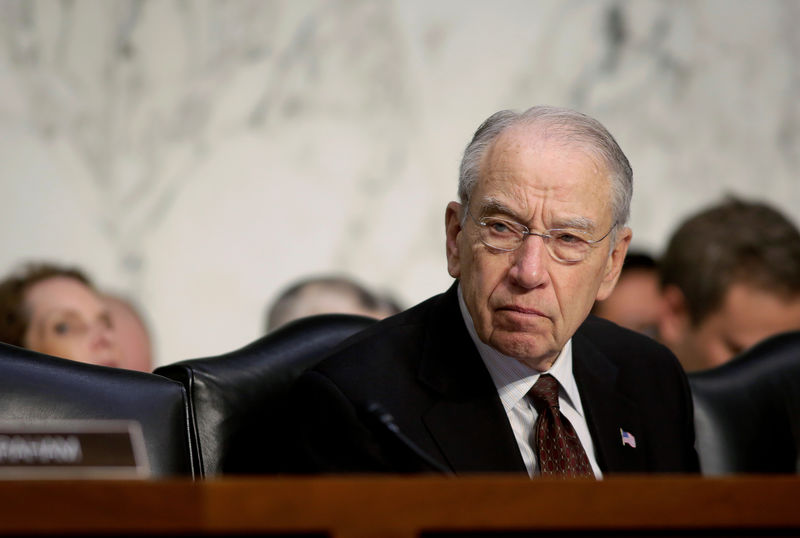By Ginger Gibson
WASHINGTON (Reuters) - U.S. Senator Chuck Grassley, head of the Senate Judiciary Committee, proposed a bill on Tuesday to overhaul disclosure rules regarding anyone working on behalf of a foreign government, a law that has received renewed attention after Paul Manafort was indicted for violating it.
The proposed legislation, called the Disclosing Foreign Influence Act, would close loopholes in the Foreign Agents Registration Act and require the Department of Justice to develop a strategy for enforcing the law, the Republican senator said in a statement.
Manafort, a longtime Republican operative who briefly served as Donald Trump's campaign manager in 2016, and his business associate Rick Gates, pleaded not guilty on Monday to a 12-count indictment that contained charges ranging from money laundering to acting as unregistered agents of Ukraine’s former pro-Russian government.
The current law, known as FARA, requires persons acting on behalf of a foreign government or political party to disclose to the Department of Justice their work as well as public communications taken on behalf of that client.
Critics have argued the reporting requirements for FARA are unclear and contains loopholes that allow American lobbyists to avoid disclosure of their foreign clients.
"Congress passed the Foreign Agents Registration Act to prevent inappropriate influence in domestic policy, but my oversight work has uncovered rampant disregard by foreign agents and lackluster enforcement by federal authorities," Grassley said in a statement.
The proposed law would clarify who is required to register, improve investigative tools, including granting authority for the Justice Department to pursue civil charges, and create new reporting requirements.
FARA was first passed in 1938 in the lead up to World War II in an effort to combat German propaganda efforts and was later amended in 1966 to include lobbyists, according to the Department of Justice.

As the chairman of the Judiciary Committee, Grassley is empowered to see that the bill quickly receives a hearing and a vote.